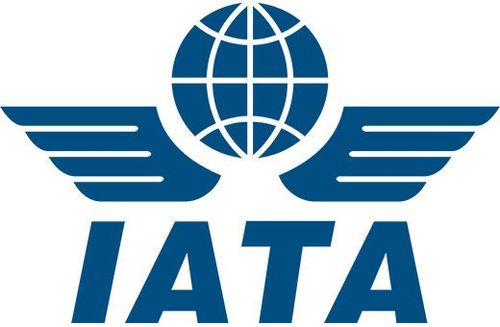Where travel agents earn, learn and save!
News / IATA releases 2021 airline safety performance
IATA members and airlines on the IATA Operational Safety Audit registry experienced zero fatal accidents last year

The International Air Transport Association (IATA) released 2021 safety performance data for the commercial airline industry showing strong improvement in several areas compared to both 2020 and to the five years 2017-2021. Highlights include:
- Reductions in the total number of accidents, the all-accident rate and fatalities
- IATA members and airlines on the IATA Operational Safety Audit (IOSA) registry (which includes all IATA members) experienced zero fatal accidents last year
- No runway/taxiway excursion accidents, for the first time in at least 15 years
| 2021 | 2020 | 5-YEAR AVERAGE (2017-2021) | |
|---|---|---|---|
| All accident rate (accidents per one million flights) | 1.01 (1 accident every 0.99 million flights) | 1.58 (1 accident every 0.63 million flights) | 1.23 (1 accident every 0.81 million flights) |
| All accident rate for IATA member airlines | 0.44 (1 accident every 2.27 million flights) | 0.77 (1 accident every 1.30 million flights) | 0.72 (1 accident every 1.39 million flights) |
| Total accidents | 26 | 35 | 44.2 |
Fatal accidents[i]
| 7 (1 jet and 6 turboprop) | 5 | 7.4 |
| Fatalities | 121 | 132 | 207 |
| Fatality risk | 0.23 | 0.13 | 0.14 |
| IATA member airlines fatality risk | 0.00 | 0.06 | 0.04 |
| Jet hull losses (per one million flights) | 0.13 (1 major accident every 7.7 million flights) | 0.16 (1 major accident every 6.3 million flights) | 0.15 (1 major accident every 6.7 million flights) |
| Turboprop hull losses (per one million flights) | 1.77 (1 hull loss every 0.56 million flights) | 1.59 (1 hull loss every 0.63 million flights) | 1.22 (1 hull loss every 0.82 million flights) |
| Total flights (million) | 25.7 | 22.2 | 36.6 |
“Safety is always our highest priority. The severe reduction in flight numbers last year compared to the 5-year average magnified the impact of each accident when we calculate rates. Yet in the face of numerous operational challenges in 2021, the industry improved in several key safety metrics. At the same time, it is clear that we have much work ahead of us to bring all regions and types of operations up to global levels of safety performance,” said Willie Walsh, IATA’s Director General.
Fatality Risk
The overall increase in the fatality risk in 2021 to 0.23 is owing to the rise in fatal turboprop accidents. There was one fatal accident involving jet aircraft last year and the jet fatality risk in 2021 was 0.04 per million sectors, an improvement over the 5-year average of 0.06.
The overall fatality risk of 0.23 means that on average, a person would need to take a flight every day for 10,078 years to be involved in an accident with at least one fatality.
IOSA
IOSA is the global industry standard for airline operational safety audits and a requirement for IATA membership. It is used by numerous authorities in their regulatory safety programs.
- 403 airlines are on the IOSA Registry, including 115 non-IATA Members.
- The all-accident rate for airlines on the IOSA registry in 2021 was more than six times better than the rate for non-IOSA airlines (0.45 vs. 2.86).
- The 2017-2021 average of IOSA airlines versus non-IOSA airlines was nearly three times as good. (0.81 vs. 2.37). All IATA member airlines are required to maintain their IOSA registration.
“The contribution of IOSA to improving safety was demonstrated in the superb results of airlines on the registry—regardless of region of operation. We will continue to evolve IOSA to support even better industry safety performance,” said Walsh.
Jet hull loss rates by region of operator (per 1 million departures)
The global average jet hull loss rate declined slightly in 2021 compared to the five-year average (2017-2021). Five regions saw improvements, or no deterioration compared to the five-year average.
| REGION | 2021 | 2020 | 2017-2021 |
|---|---|---|---|
| Africa | 0.00 | 0.00 | 0.28 |
| Asia Pacific | 0.33 | 0.62 | 0.29 |
| Commonwealth of Independent States (CIS) | 0.00 | 0.00 | 0.92 |
| Europe | 0.27 | 0.31 | 0.14 |
| Latin America and the Caribbean | 0.00 | 0.00 | 0.23 |
| Middle East and North Africa | 0.00 | 0.00 | 0.00 |
| North America | 0.14 | 0.00 | 0.06 |
| North Asia | 0.00 | 0.00 | 0.03 |
| Global | 0.13 | 0.16 | 0.15 |
Turboprop hull loss rates by region of operator (per 1 million departures)
Five regions showed improvement or no deterioration in the turboprop hull loss rate in 2021 when compared to the 5-year average. The only regions to see increases compared to the five-year average were the CIS and Africa.
Although sectors flown by turboprops represented just 10.99% of total sectors, accidents involving turboprop aircraft represented 50% of all accidents, 86% of fatal accidents and 49% of fatalities in 2021.
“Turboprop operations will be a focus area to identify ways and means to reduce the number of incidents related to certain aircraft types,” said Walsh.
| REGION | 2021 | 2020 | 2017-2021 |
|---|---|---|---|
| Africa | 5.59 | 9.77 | 5.08 |
| Asia Pacific | 0.00 | 0.00 | 0.34 |
| Commonwealth of Independent States (CIS) | 42.53 | 0.00 | 16.81 |
| Europe | 0.00 | 0.00 | 0.00 |
| Latin America and the Caribbean | 0.00 | 2.35 | 0.73 |
| Middle East and North Africa | 0.00 | 0.00 | 1.44 |
| North America | 0.00 | 1.74 | 0.55 |
| North Asia | 0.00 | 0.00 | 0.00 |
| Global | 1.77 | 1.59 | 1.22 |
Safety in CIS
Airlines based in the CIS region experienced no fatal jet accidents in 2021 for the second consecutive year. However, there were four turboprop accidents. Three of these resulted in 41 fatalities, accounting for more than a third of 2021 fatalities. None of the airlines involved was on the IOSA registry.
Safety in Africa
Airlines based in sub-Saharan Africa experienced four accidents in 2021, all with turboprop aircraft, three of which resulted in 18 fatalities. None of the operators was on the IOSA registry. There were no jet hull loss accidents in 2021 or 2020.
The priority for Africa is the implementation of the International Civil Aviation Organization’s (ICAO) safety-related standards and recommended practices (SARPS). At year-end 2021, some 28 African countries (61% of the total[i]) had 60% or greater SARPS implementation. In addition, a focused multi-stakeholder approach to specific states will be important to addressing repeated occurrences.











